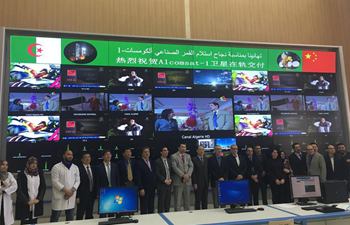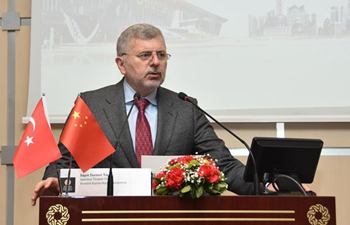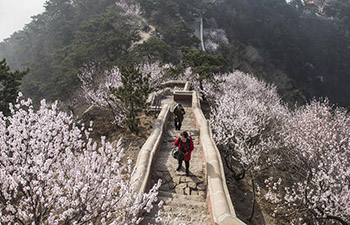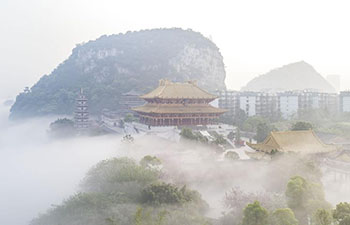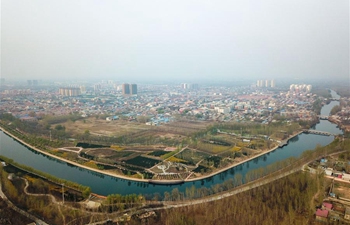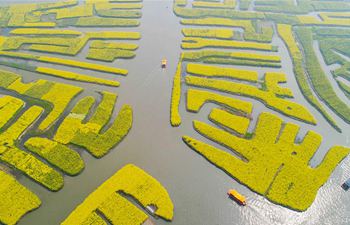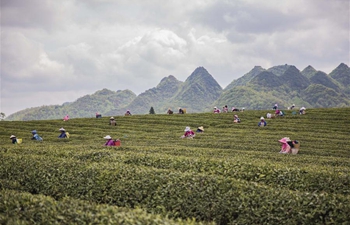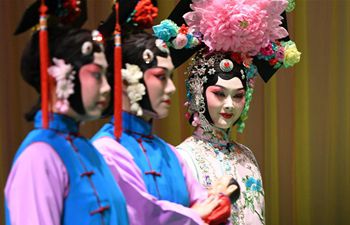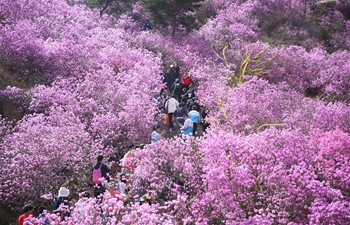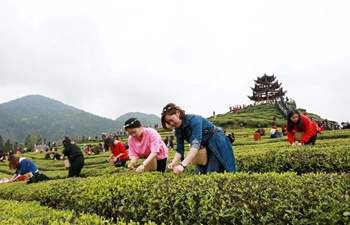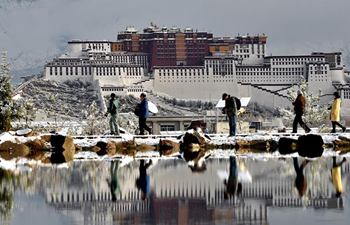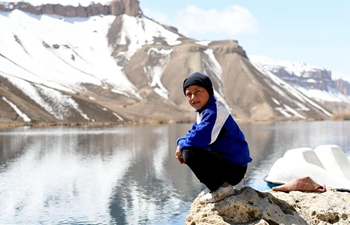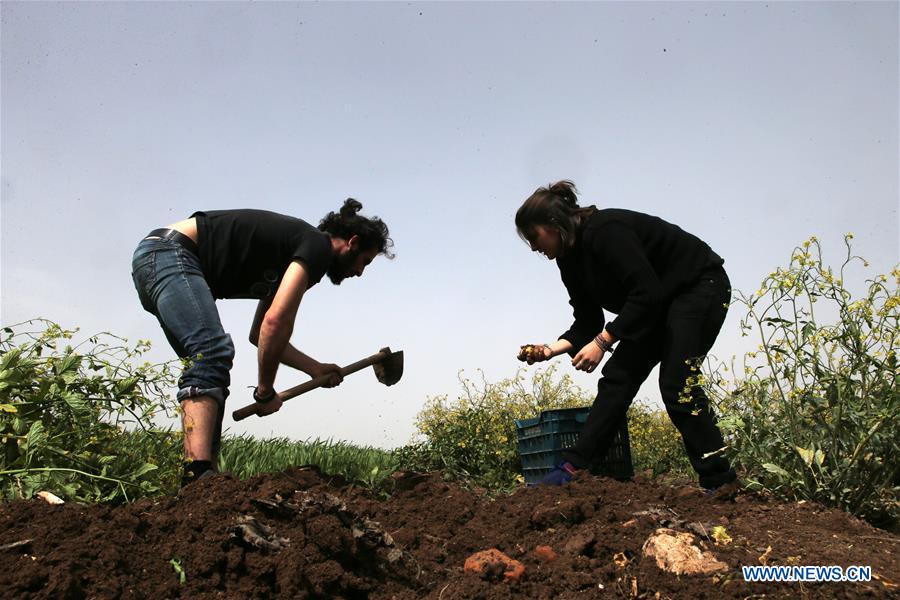
Photo taken on March 26, 2018 shows refugees working in the field in the village of Kaparelli, in Viotia, 60 kilometers northwest of Athens, Greece. A group of refugees struggling for a new life in Greece started to supply farming products to markets and restaurants in the center of Athens in a village about 60 km away from Athens. (Xinhua/Marios Lolos)
by Maria Spiliopoulou, Valentini Anagnostopoulou
ATHENS, April 2 (Xinhua) -- It would be no big thing when a group of farmers in a village about 60 km away from Athens started to supply farming products to markets and restaurants in the center of Athens, if they were not refugees struggling for a new life in Greece.
When most of the over 60,000 refugees and migrants still live in limbo in state-run camps or apartments rented with international funding, this group, five families from Syria and Palestine, has started to stand on their own feet.
With 35 acres of farmland in Kaparelli, a village with only some 1,700 residents, they started their collective farming business "Roots" last spring.
The name "Roots" embodies their hope for a new life: taking roots in a land far away from their home countries.
"Roots" did not disappoint them, as the business has achieved some success with the forming of a remarkable production line, which has biological wheat, potatoes, beans, onions and grapes in addition to cheese made from the milk of their five cows and 15 sheep and the eggs of their dozens of chicken. They even opened a vegan restaurant with their farming products on menu this January.
When recalling the past year, Solaiman Dakdouk, a Syrian refugee who has lived in Greece three decades, admitted it is no easy task to start business for refugees like them.
"It was difficult in the beginning... Gradually we gained locals' trust and we ended up with them seeking us to offer us the land they own but nobody cultivates," said Dakdouk.
And their effort has won trust and respect from the local.
By renting farmland from the local and employing local farmers, "Roots" tore down prejudices and xenophobia while making money.
"I think that people are afraid of the unknown... There is no issue whether there is space for us. We are depriving no one of their space," Dakdouk said.
"Our main goal was to be able to be independent, to make a living with dignity producing our food and not need charity by anyone," Dakdouk told Xinhua.
Other members of the refugee-run business hold similar points of view with Dakdouk. They are eager to live on their own.
Samir Mhanna from Gaza came to Greece a year ago, but was unhappy with his life in Athens relying on the help of humanitarian groups.
"It is a different idea compared to the usual approaches on how to provide help to refugees. This was a different way of thinking. We can be producers ourselves so that we do not need other forms of support," Mhanna told Xinhua during a break from his hard field work.
"Here we work on the field ourselves...We can work and produce, we can self-organize and present a good example for the refugees," he added.
Sozan Sipo, a teacher from Syria's Afrin about a year ago, was never a farmer or a cook before she worked with "Roots". But this did not prevent her from seeking an independent life.
"They talked to us about this project and I came. Here one can rely on himself and stop being dependant on others," she told Xinhua.
Considering the some 60,000 refugees stranded in Greece, "Roots" story may be just a drop in the ocean. But no one can deny that even a drop can start a ripple effect that spreads.
"Comparing to the past we are happy with this project. We became producers and we want to express gratitude to everybody for this. Nobody knows what will happen in the future," said Sipo.




